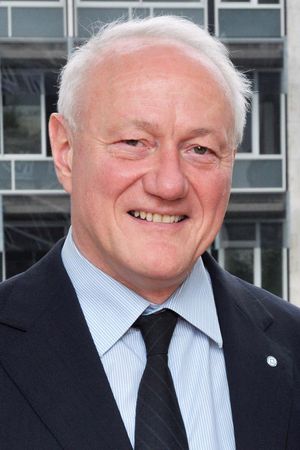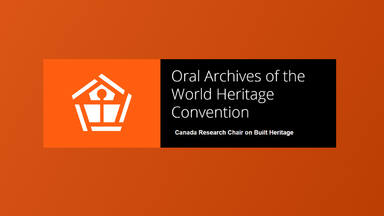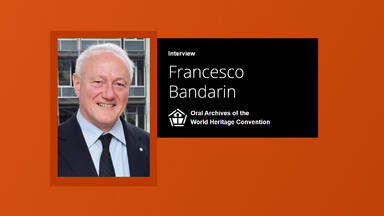
Interview
Francesco Bandarin (2018)
World Heritage Convention
Francesco Bandarin is an Italian architect and urban planner. He holds a degree in Architecture from the Venice Institute of Architecture and a Master's degree in Urban and Regional Planning from the University of California at Berkeley. He has pursued an academic career at the IUAV University of Venice as a professor of urban planning, as well as working as a consultant for international organizations in the field of urban conservation and development.
In this regard, he was Director of the Special Projects Bureau for the Safeguarding of Venice and its Lagoon and Director of Special Programs for the Preparations for the Jubilee 2000 in Rome. In 2000, he became Director of the UNESCO World Heritage Centre, a position he held for ten years. He subsequently served as UNESCO’s Assistant Director-General for Culture from 2010 to 2014. His term of office was renewed in 2015 for an interim period.
Francesco Bandarin is also president of the Associazione Nazionale Centri Storico-Artistici (ANCSA) and member of the editorial committee of the journal City, Culture and Society. He was a member of the selection committee for the Aga Khan Architecture Award for the 2014-2016 cycle. Author of numerous articles and specialized publications, he recently co-authored The Historic Urban Landscape: Managing in an Urban Century (2012) and Reconnecting the City. The Historic Urban Landscape Approach and the Future of Urban Heritage (2014), published by Wiley-Blackwell.
Interview with
Francesco Bandarin
14 May 2018, Paris, France
The audio clips are from an interview with Francesco Bandarin by Christina Cameron the 14 May 2018 at UNESCO headquarters in Paris, France. They cover the period from 2015 to 2018 when he returned as Assistant Director-General for Culture, including the challenges encountered at the Istanbul (2016) and Krakow (2017) sessions of the World Heritage Committee, the participation of civil society, Agenda 2030 and reconstruction of urban heritage.
- 1. The 2016 (Istanbul) and 2017 (Krakow) Committee sessions
- 2. The role of civil society
- 3. The UN’s 2030 Agenda
- 4. Intentional destruction of World Heritage
Oral Archives of the
World Heritage Convention
Under the leadership of the Canada Research Chair on Built Heritage at the University of Montreal, an international team of researchers conducts interviews with pioneers of World Heritage to capture memories of important moments in the history of UNESCO Convention.
Launched in 2006, this initiative is part of the UNESCO History project that celebrated the 60th anniversary of the creation of UNESCO. The Oral Archives project records the precious witness of people closely associated with the creation and implementation of the Convention. Their recollections and views have greatly enriched the book by Christina Cameron and Mechtild Rössler, Many Voices, One Vision: The Early Years of the World Heritage Convention (Ashgate/Routledge, 2013).

